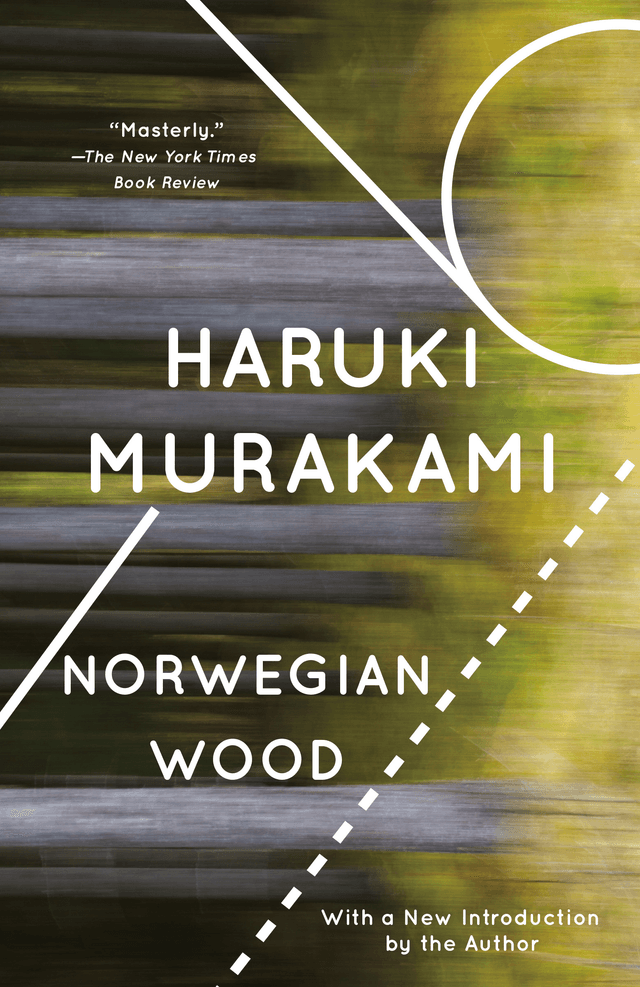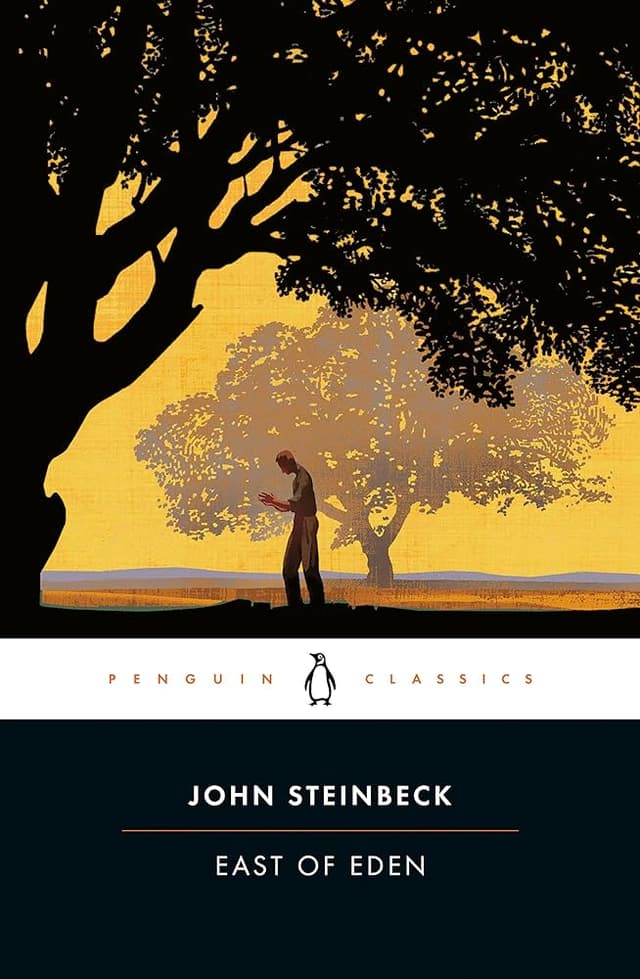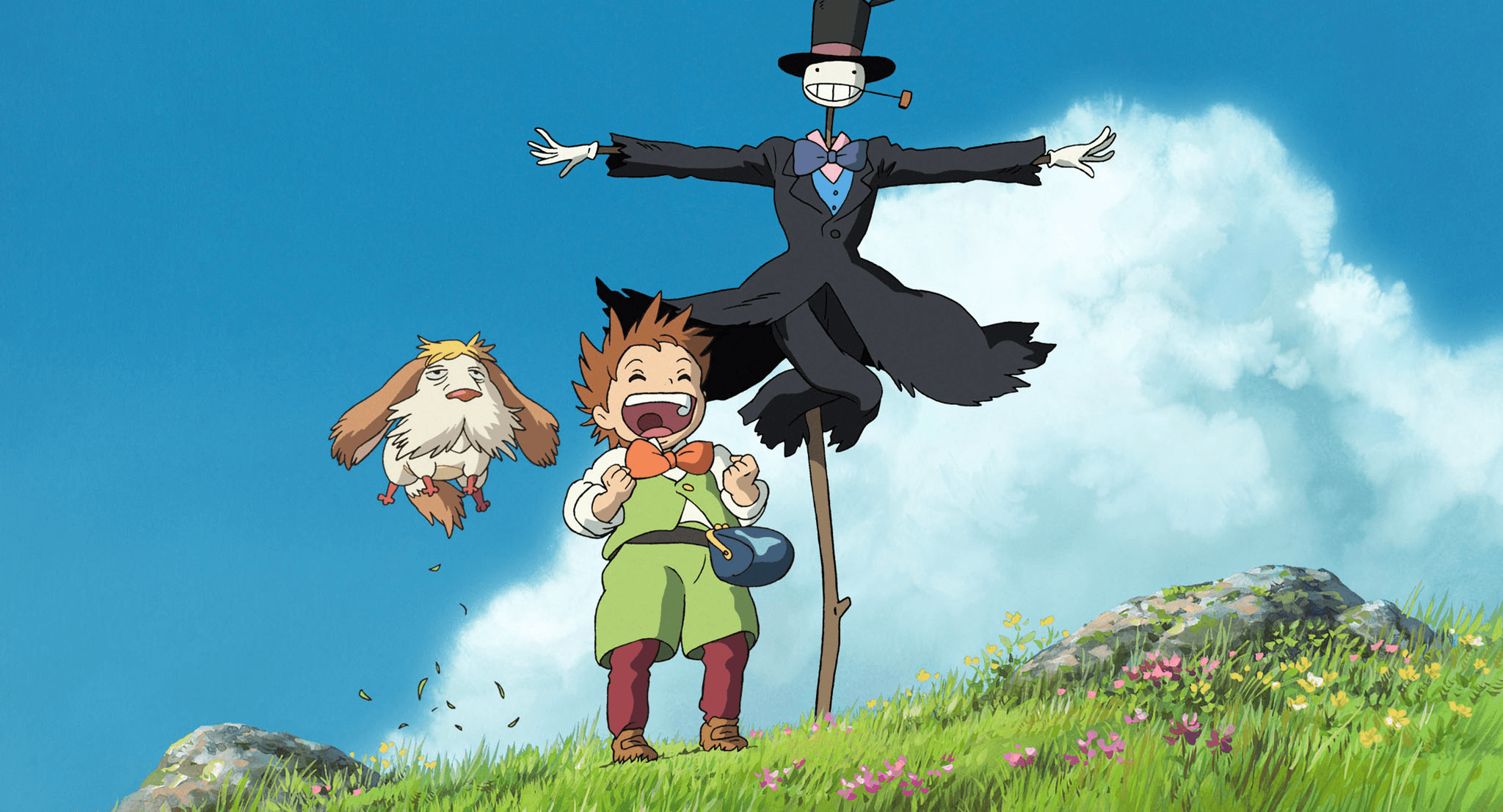Norwegian Wood vs. East of Eden
Norwegian Wood
Toru, a serious young college student in Tokyo, is devoted to Naoko, a beautiful and introspective young woman, but their mutual passion is marked by the tragic death of their best friend years before. As Naoko retreats further into her own world, Toru finds himself drawn to a fiercely independent and sexually liberated young woman. Stunning and elegiac, Norwegian Wood first propelled Haruki Murakami into the forefront of the literary scene.
East of Eden
In his journal, Nobel Prize winner John Steinbeck called East of Eden “the first book,” and indeed it has the primordial power and simplicity of myth. Set in the rich farmland of California’s Salinas Valley, this sprawling and often brutal novel follows the intertwined destinies of two families—the Trasks and the Hamiltons—whose generations helplessly reenact the fall of Adam and Eve and the poisonous rivalry of Cain and Abel.
Reviews
Reviews
| Item | Votes | Upvote |
|---|---|---|
| No pros yet, would you like to add one? | ||
| Item | Votes | Upvote |
|---|---|---|
| No cons yet, would you like to add one? | ||
| Item | Votes | Upvote |
|---|---|---|
| No pros yet, would you like to add one? | ||
| Item | Votes | Upvote |
|---|---|---|
| No cons yet, would you like to add one? | ||
Frequently Asked Questions
Norwegian Wood by Haruki Murakami and East of Eden by John Steinbeck are both acclaimed novels but cater to different literary tastes. Norwegian Wood is a modern coming-of-age story set in Tokyo, focusing on themes of love, loss, and psychological introspection. It propelled Murakami into the literary spotlight. On the other hand, East of Eden is a classic American novel that deals with broader themes of good versus evil, family dynamics, and moral dilemmas set against the backdrop of California's Salinas Valley. It is often seen as a retelling of the biblical Cain and Abel story. The choice between the two depends on whether you prefer contemporary Japanese literature with a focus on personal relationships or a more epic, mythic American narrative.
Norwegian Wood explores themes of love, loss, mental health, and personal growth primarily through the lens of its protagonist, Toru, and his relationships. The novel delves deeply into the emotional and psychological struggles of its characters. In contrast, East of Eden tackles grand themes such as good versus evil, familial legacy, and moral choice. It uses the dynamics between the Trask and Hamilton families to explore these universal themes, often drawing parallels to the biblical story of Cain and Abel. While Norwegian Wood is introspective and character-driven, East of Eden is more expansive and allegorical.
Both novels have strong character development, but they approach it differently. Norwegian Wood focuses intensely on the inner lives and emotional journeys of a few central characters, particularly Toru and Naoko, making the reader deeply invested in their personal growth and struggles. In contrast, East of Eden spans multiple generations and features a larger cast of characters, each with their own arcs and development. While East of Eden offers a broader scope of character development, Norwegian Wood provides a more intimate and detailed exploration of its main characters' psyches.
Yes, the settings in both novels are crucial to their narratives. Norwegian Wood is set in Tokyo during the 1960s, a period of political unrest and cultural change in Japan. The urban setting and historical context add layers to the characters' experiences and the overall mood of the story. In contrast, East of Eden is set in the Salinas Valley of California, which plays a significant role in shaping the novel's themes and the destinies of its characters. The rural setting and its connection to the land are integral to the novel's exploration of good and evil, as well as the generational saga of the Trask and Hamilton families.
'Norwegian Wood' is a novel by Haruki Murakami that follows the story of Toru, a serious college student in Tokyo. The plot revolves around Toru's devotion to Naoko, a beautiful and introspective young woman. Their relationship is deeply affected by the tragic death of their best friend years before. As Naoko withdraws further into her own world, Toru becomes attracted to another woman who is fiercely independent and sexually liberated. The novel is known for its elegiac and stunning prose, and it played a significant role in propelling Murakami into the literary spotlight.
Haruki Murakami is a renowned Japanese author known for his unique blend of fantasy, realism, and surrealism. His works often explore themes of loneliness, existentialism, and the human psyche. Some of his most famous books include 'Norwegian Wood', 'Kafka on the Shore', and '1Q84'. Murakami's writing has garnered a global audience and has been translated into numerous languages.
'Norwegian Wood' delves into themes such as love, loss, and mental health. The novel explores the complexities of human relationships and the impact of past traumas on the present. It also touches on the struggles of dealing with grief and finding one's own identity amidst emotional turmoil.
'Norwegian Wood' is significant in Haruki Murakami's career as it was the book that brought him widespread recognition and propelled him into the forefront of the literary scene. The novel's emotive and introspective narrative resonated with a large audience, establishing Murakami as a leading voice in contemporary literature.
'Norwegian Wood' contains mature themes, including mental illness, suicide, and sexual content. While it is a beautifully written novel, it may not be suitable for all readers, particularly younger audiences or those sensitive to such topics. Readers should consider these elements before deciding to read the book.
'East of Eden' is a novel by Nobel Prize winner John Steinbeck. Set in California’s Salinas Valley, it follows the intertwined destinies of two families—the Trasks and the Hamiltons. The novel explores themes of good and evil, drawing parallels to the fall of Adam and Eve and the rivalry of Cain and Abel.
The author of 'East of Eden' is John Steinbeck, a Nobel Prize-winning American author known for his impactful and vivid storytelling. Steinbeck's works often explore themes of social and economic issues.
'East of Eden' delves into major themes such as good versus evil, the concept of free will, and the quest for identity. It also explores familial relationships and the moral struggles within them.
'East of Eden' is set in the rich farmland of California’s Salinas Valley. The setting plays a significant role in the novel, providing a backdrop that enhances the dramatic and often brutal events of the story.





















